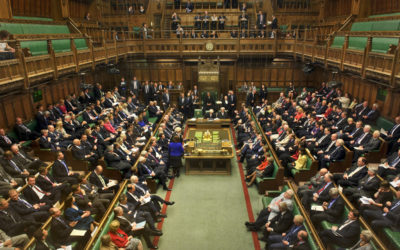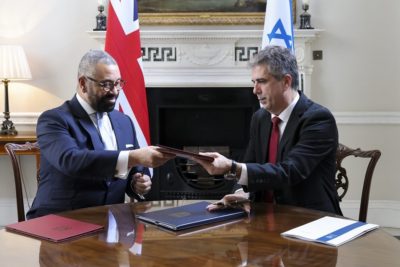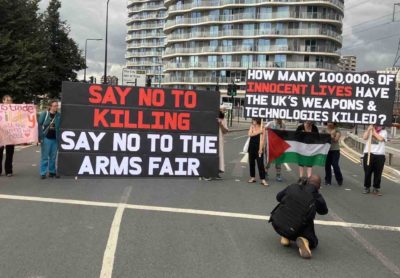The Troubles so-called: Britain’s War in Ireland

In a recent conversation with one of the UK’s leading national security journalists, this writer heard a quote about Ireland which stuck with me: “what the English can never remember, the Irish can never forget”.
That conversation was with Ian Cobain, author of books on torture, state secrecy and, most recently, the period referred to as The Troubles. Ian is one of three guests on our latest Warrior Nation mini-series focusing on Ireland. The other interviews – one with a former occupying soldier turned peace activist and one with a Derry resident who experienced the brutality of the Troubles first-hand – came as the new bill on Northern Ireland legacy issues was passing through Parliament into law.
Its central aim appears to be to inoculate the British state against accountability, including through legal action. And the ideology which has driven it is one of British exceptionalism, militarism, coloniality and no small amount of anti-Irish feeling. You can read our full analysis of the legacy bill here.
Down the memory hole
The bill passed into law on 18 September 2023. All House of Lords amendment were rejected. This was despite almost universal opposition from human rights and victims’ group. In fact, as former soldier Lee Lavis pointed out in our first podcast episode, the bill did something quite unusual in Ireland, achieving the rarely achievable by uniting all sides in the conflict against it. And it is notable that the proposed law “attracted criticism from UN senior representatives, the Council of Europe, and the US Congress”. The Irish government has strongly opposed the bill and is shaping to lodge a case against it in the European Courts.
Amnesty International warned that the act would, put simply, make everything worse. The organisation listed their objections in early September, saying the Troubles bills would:
- give impunity to murderers, and those responsible for torture;
- block victims from accessing justice via legal action;
- be a significant interference in the justice system;
- breach the Good Friday Agreement;
- go against existing agreements between the UK and Irish Governments and NI Political Parties on legacy;
- create a two-tier justice system in the UK;
- fail to deliver human rights compliant investigations; and
- set an international precedent that signals to other States they too can ignore their human rights obligation.
Almost immediately upon the bill passing into law, legal challenges began to be lodged on behalf of victims of paramilitary and British state violence. Amnesty’s Northern Ireland deputy director Grainne Teggart had earlier pledged:
“We made it clear that if this Bill became an Act – we would continue to stand with victims and fight against this unacceptable denial of rights.”
Tory MP Johnny Mercer, a key architect of the Overseas Operations Bill (which, as you can read here, also seeks to prevent British personnel from persecution), was one of those who celebrated the new law. He said he had fulfilled a pledge to the late Dennis Hutchings, an accused army veteran who died before coming to trial. Mercer told the press:
“I made a promise to veterans that I would never quit. I made a promise to Dennis. I remember when Dennis was alive, he genuinely felt no one in government really stood up for him.”
“People are obviously annoyed that [the Act] came too late for Dennis. But I hope this brings comfort to those who have had their lives destroyed simply because they served this nation in Northern Ireland.”
Interestingly, Mercer makes this claim against an alternative reality: only one former soldier has been convicted since the Good Friday agreement was signed in 1998.
Voices from the Troubles
It is in this context that ForcesWatch decided to make a short mini-series on Ireland, platforming voices whose lives and work have been shaped by the war in the North. The first was Lee Lavis, a former soldier who settled in the north of Ireland after service. His work includes hosting panels where former Republican and Loyalist prisoners come together to discuss their lives and the reconciliation process. He was also a member of Veterans for Peace UK.
Lee’s knowledge of the conflict and of Irish history and politics is deeply textured. We spoke about his journey from a working-class English kid into the ranks of the infantry. In the late 80s and into the 90s he served in Armagh and Belfast. He later lived as a civilian in Loyalist and Republican areas of the North. Among many interesting points he talked powerfully about the ‘ceasefire generation’ to which his own child belongs and their shift from sectarian politics. He also spoke about the rise (and rising appeal) of the centre-left Alliance Party, whose agnostic approach to Irish reunification has seen it gather a substantial voter base.
Fiona Gallagher joined us for episode two. Fiona was born into an Irish family in Derry in 1968 – a critical year in the so-called Troubles. Her life was impacted by the prejudice and inequality foisted onto Catholic families by the very structures of Northern Irish politics. Fiona’s upbringing was coloured by powerful experiences of community solidarity and culture, but also by the daily rhythms of checkpoints, violent house raids and segregation.
Like many young Irish nationalists in the wake of the British Army’s massacre of peaceful protestors on Bloody Sunday, her older brother Jim joined the Irish Republican Army. He spent time in and out of prison and upon his final release, just before his 21st birthday, he was shot dead by a British soldier. The soldier was later convicted for the killing. In a remarkable, emotive and often humorous account, Fiona related the experiences of the occupation, her reflections on the impacts on her, her family and community and her hopes for the future.
Moving from the personal to the journalistic, we spoke to Ian Cobain, whose work on the War on Terror led him back to Ireland. In a compelling interview with a keen observer of war and conflict, it’s hard to pick a highlight. But nowhere is it truer that the devil is in the detail than the war in the North. For example, Ian’s research on how during the conflict the British military and NI police force discreetly dictated town planning in Belfast according to their security aims. One new estate for Catholics was designed to shape arcs of fire and allow the passage and support of armoured vehicles, whilst a motorway was built as a deliberate cordon sanitaire.
Ian lamented the lack of understanding among the British public of the conflict, pointing out that reportage on the issue during the Troubles was held back by editorial decisions in the press. He urged that people take an interest in the legacy of the war, in the interests of better future relations with our close neighbours. His interview was a powerful call for people to engage with the conflict in an even-handed and critical mode.
You can find all three episodes of our Ireland mini-series here. If you like what you hear you can also support the show by leaving us a rating or a review – both will help us increase our listenership.
See more: human rights, legislation & policy, Northern Ireland, UK Parliament, Warrior Nation
Like what you read?
> Sign up for our newsletter or blog notifications
> Support our work – from just £2 a month









